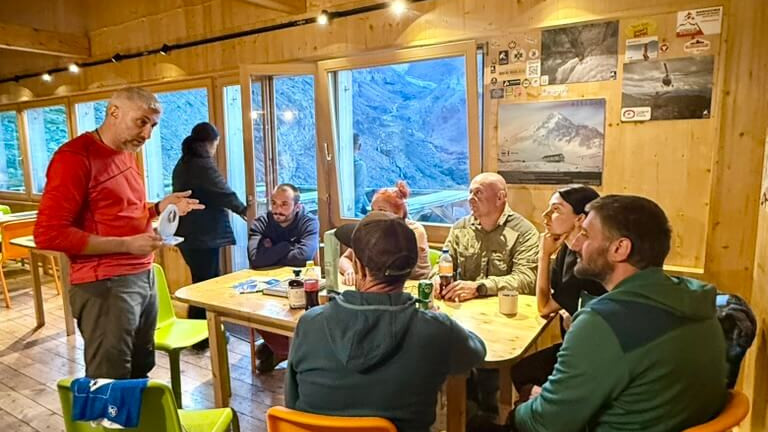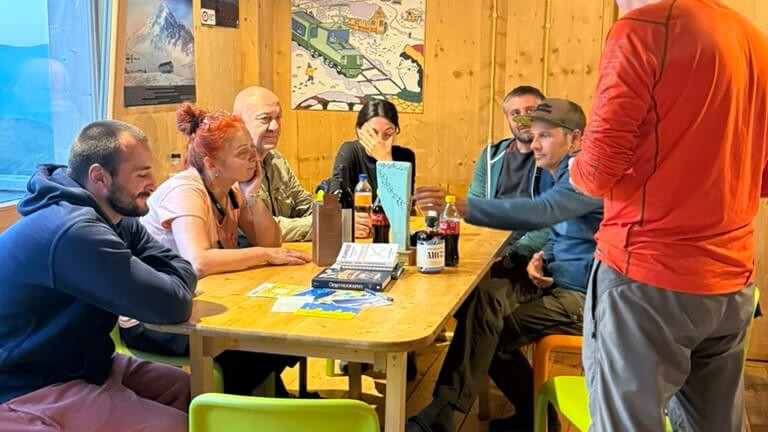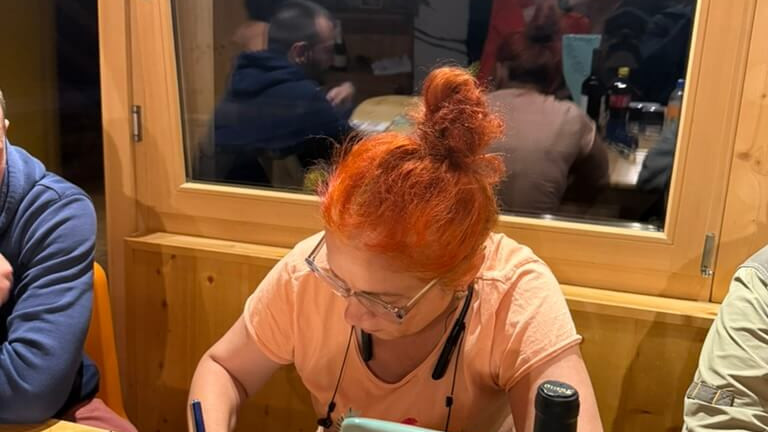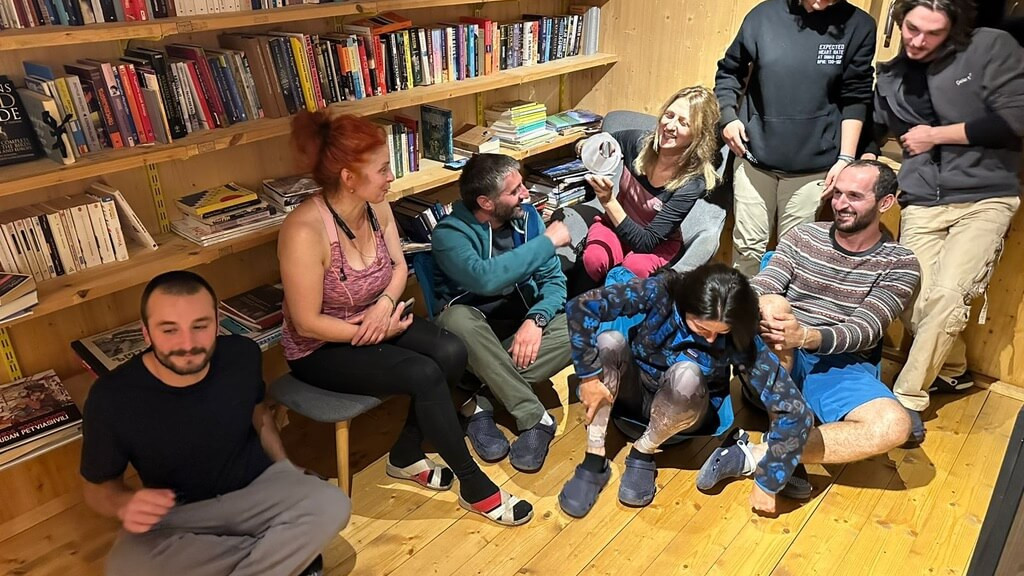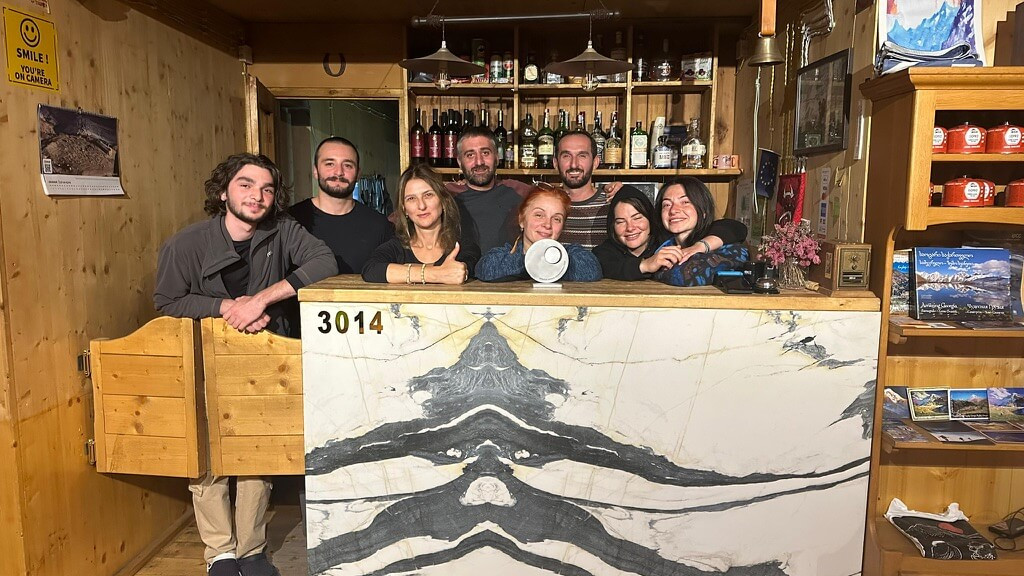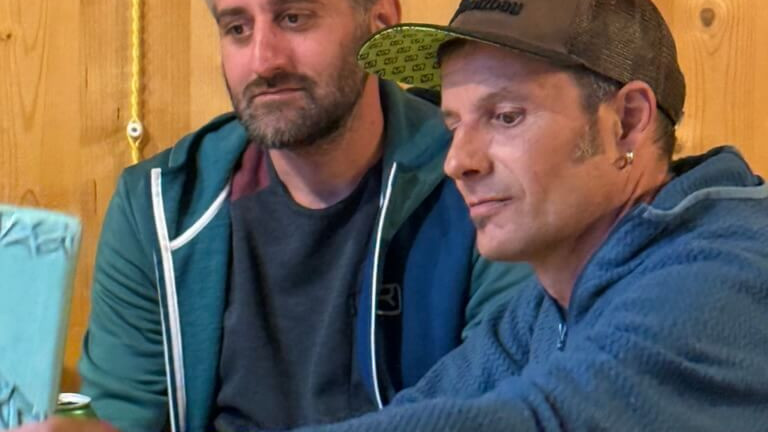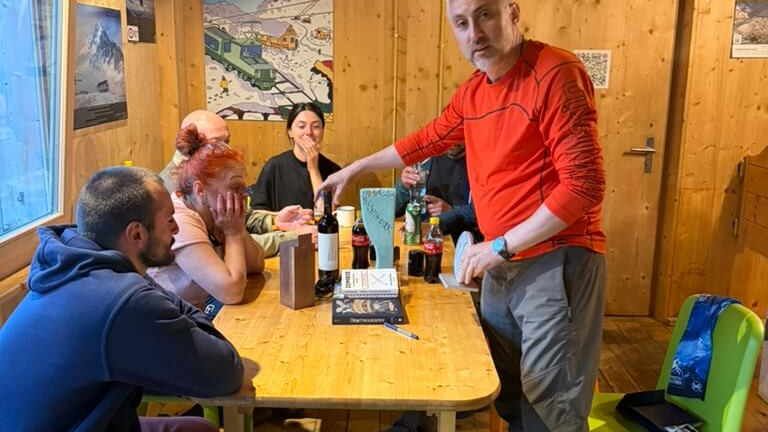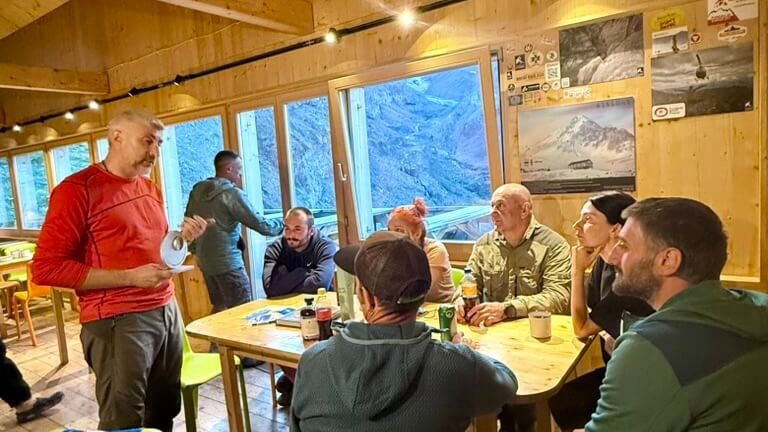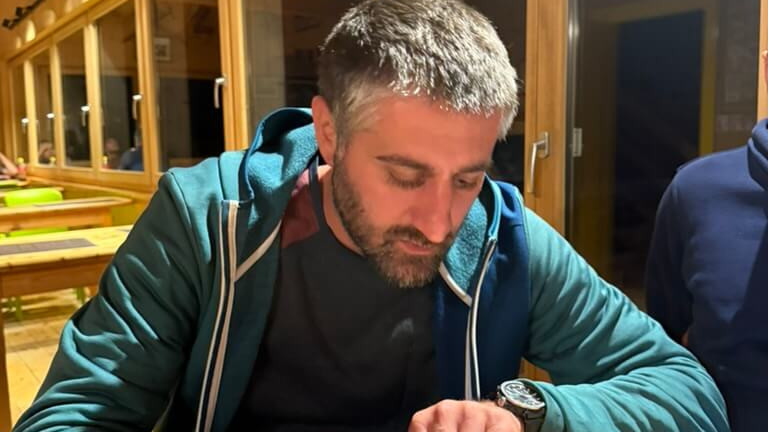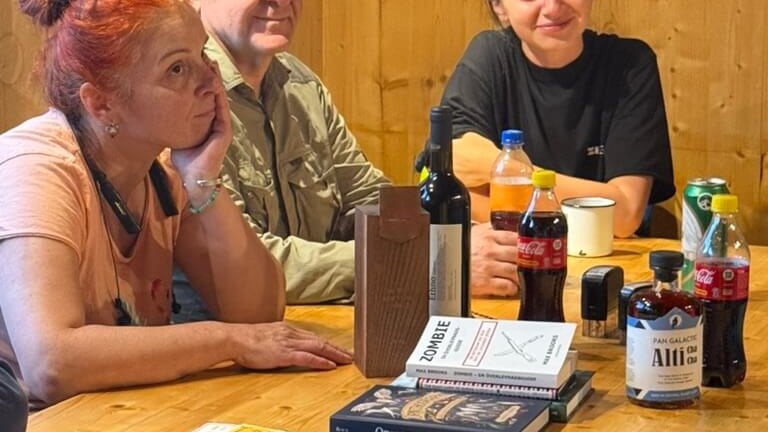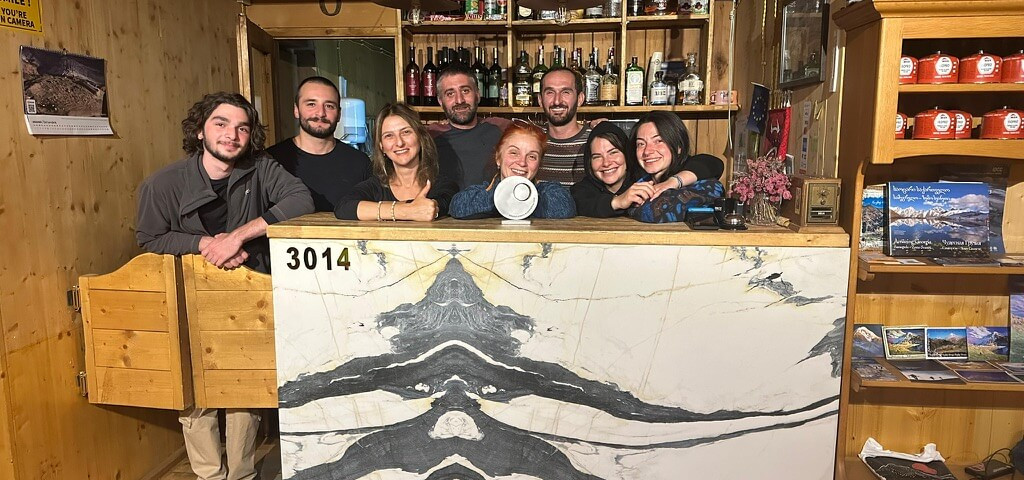
AltiHut, An Alpine Hut at 3,014 Meters Above Sea Level
TBC FOR Business Blog, September 9, 2025
Translated by the AltiHut team
Many years later, at 3,014 meters above sea level, Nikoloz Alavidze was to remember the distant day when he led his fifteen-year-old child up toward the jagged slopes of Chaukhi together with Mamuka Nikoladze, David Chichinadze, and George Keshelashvili. The fathers, weary from the climb, spoke in half-serious laments about the disorder that reigned in the sacred silence of the mountains, where nature’s beauty was stained by human neglect and irresponsibility. And the child, unburdened by resignation, looked at them with the clarity of youth and said: “If you are so troubled, then why not be the ones to change it? Give up the toast-making and do the job!”
The words fell like cold water on tired skin, undeniable and impossible to ignore. The “fathers” soon removed decades’ worth of accumulated garbage from the area around the so-called Sabertse camping point at 3,000 meters, installed bio-toilets, little bridge over the Chkheri river, and then carried out a project many considered crazy and unrealistic.
That’s how AltiHut came into this world.
In 2025, Nikoloz Alavidze, in his application for the TBC Business Award, quoted a masterpiece by Gabriel García Márquez, and AltiHut won second place for its contribution to the development of the region.
But let’s go chronologically, and with less ambiguity than One Hundred Years of Solitude. After all, only ten years have passed from Chaukhi expedition and birth of the Altihut idea.
A Hut Born of Vision
AltiHut is a mountain shelter and alpine hotel located at 3,014 meters above sea level. After the meteorological station (now Bethlehem Hut), built in the 1940s under the oversight of Lavrentiy Beria, AltiHut is the second major project on the crest of the Caucasus. And, an important fact: during its construction, and even afterwards, nobody was “assigned” to the Gulag road.
The hut was prefabricated in Switzerland by top professionals, flown in by a legendary Swiss helicopter pilot, and finally assembled in Georgia.
In the alpine zone there had never been a single safety standard. The “eccentric earthlings” (as they call themselves) built a footbridge over the Chkher River and a helipad, which later proved crucial for rescue operations. They even installed antennas at their own expense, ensuring signal coverage across the alpine territory using cellular repeaters.
It is therefore no surprise that in their business plan, the company expects profit only after 80 years. Yes, 80 years. That is the size of our ambition, say Nikoloz.
A Mission Beyond Profit
“From day one, we believed that AltiHut should be oriented toward impact, solving the problems that were hindering the country’s development. So instead of taking dividends to buy Porsche supercars, or opening shawarma chains, we chose this path, simple but not easy.
At first, the amount of garbage we encountered was overwhelming. Tons of waste had been accumulating for decades, and naturally, this garbage didn’t appear on its own. We proceeded step by step. Installing bio-toilets was part of our systemic approach to solving this problem.”
“The hotel is fully energy-efficient and powered by solar energy,” says one of the founders, Nikoloz Alavidze, who also invokes Ilia Chavchavadze: “Movement, and just movement, my dear river Tergi, is the nation’s support and giver of life.”
They also love literature. Even at 3,014 meters there is a special space dedicated to a reading library in AltiHut. If you are enchanted by the views of the Caucasus and feel like sharing your impressions, writing is encouraged. And yes, here you will find the highest active post office box in Europe, fully operating. You can send postcards to anywhere, far, far away.
Community Impact
By extending the tourist season and attracting high-spending visitors, AltiHut has helped strengthen the local community. The restaurant at 3,014 meters is supplied exclusively with natural ingredients brought in by local farmers. After a hearty breakfast, you can thank not only the chef but also the “sub-chefs”: Nisla and Alumina, the horses responsible for AltiHut logistics. They carry all the supplies up and down the mountain.
“Washing a single set of linens costs us a fortune, it needs to be transported by horses both ways, which increases costs as well. But we do it consciously and bear this expense with purpose. Industrial laundry is handled daily in a small family-run laundry in the village of Gergeti, funded by USAID. We have a contract with them, and the aim is to pay local people for services they can provide; and even create new sources of income for them,” says Nikoloz.
If, despite a strong desire, your non-sporty lifestyle makes climbing to AltiHut seem like a distant prospect, then simply visit their website: altihut.ge
The Spirit of AltiHut
Amid everyday routine, you’ll find true inspiration here. You’ll see that among us are people who are not only good at doing things, but also even better at telling stories.
And perhaps it is no surprise. Among the winners of TBC’s Business Awards are always those who believe that success is not an accident, but a journey already underway.

